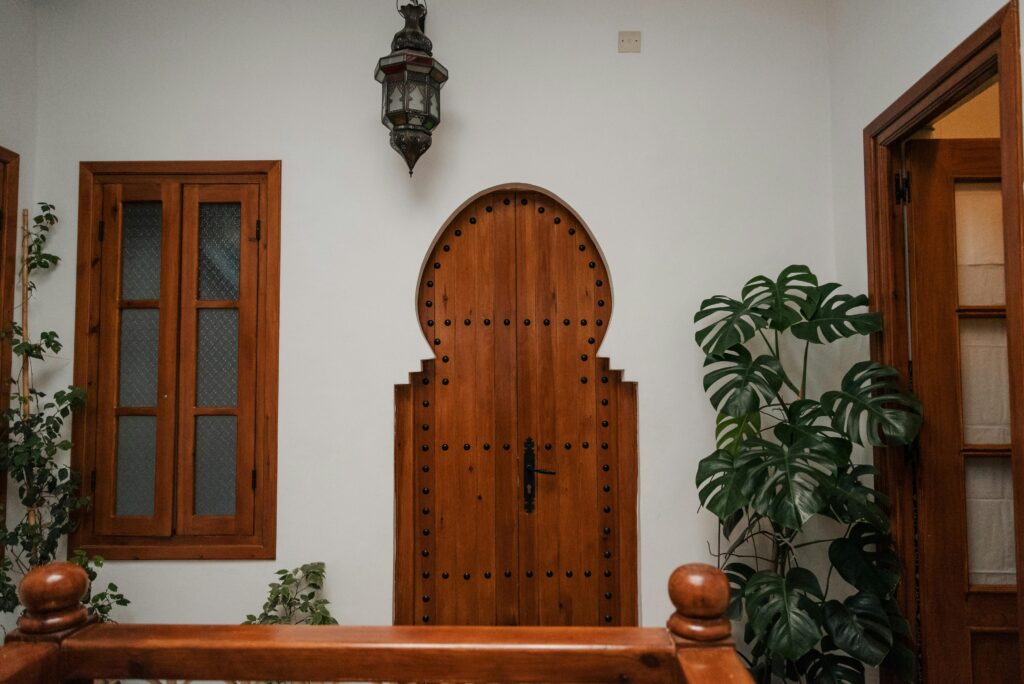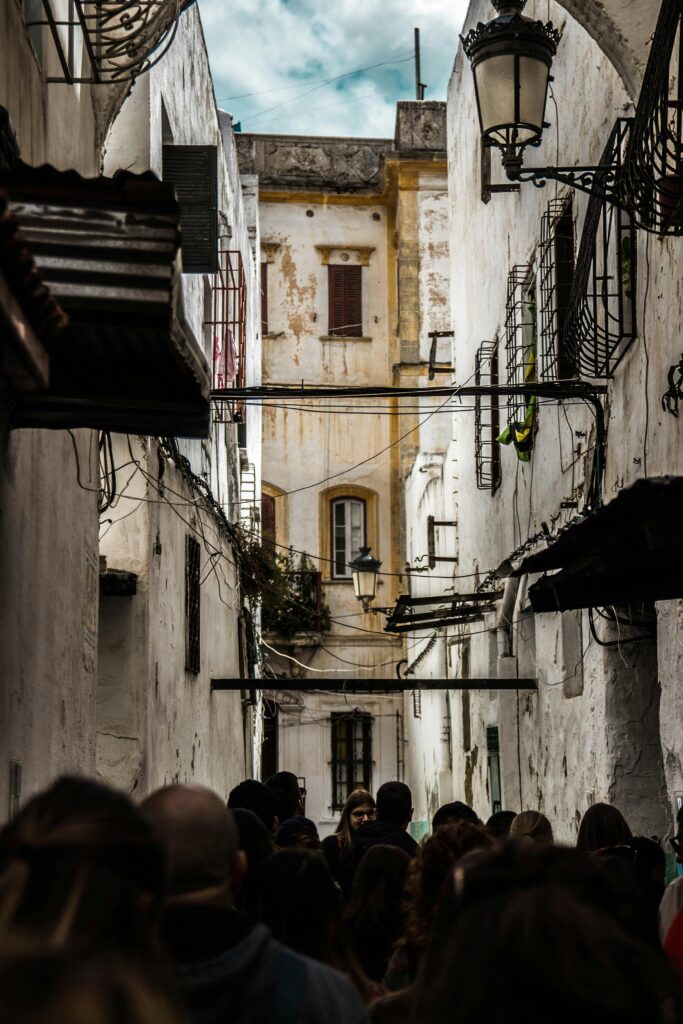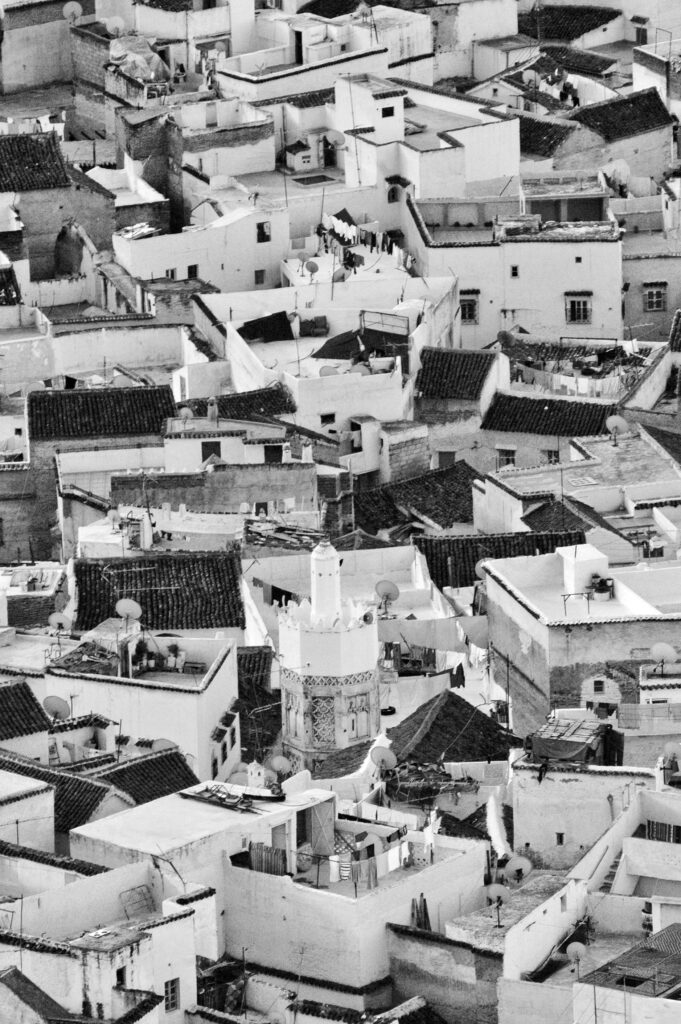
Nestled between the Rif Mountains and the Mediterranean coast, Tetouan stands as one of Morocco’s most enchanting yet underrated cities. Known as “The White Dove” for its pristine whitewashed buildings and peaceful aura, Tetouan is a living museum of Andalusian-Moorish heritage. If you’re seeking an authentic Moroccan experience away from tourist crowds, this UNESCO-listed gem should be at the top of your list.
Why Tetouan? The Allure of Morocco’s Hidden Jewel
Unlike Marrakech’s bustling souks or Chefchaouen’s blue-painted fame, Tetouan offers something different—a perfectly preserved blend of Moroccan and Andalusian culture. Founded by Andalusian refugees in the 15th century, the city’s architecture, cuisine, and traditions reflect a deep Spanish-Moorish influence.
What Makes Tetouan Special?
✔ UNESCO World Heritage Medina – One of the best-preserved in Morocco
✔ Andalusian Flair – A unique fusion of Spanish and Moroccan culture
✔ Authentic & Untouristy – Escape the crowds and experience real local life
✔ Stunning Natural Surroundings – Between mountains and sea
Exploring Tetouan’s Timeless Medina
1. A Maze of History & Culture
Tetouan’s medina is a UNESCO-listed masterpiece, with narrow winding alleys, ornate doorways, and whitewashed walls adorned with colorful tiles. Unlike other Moroccan cities, it remains refreshingly untouched by mass tourism.
Must-See Spots:
- Place Hassan II – The lively main square
- Royal Palace – A stunning example of Hispano-Moorish architecture
- Ethnographic Museum – Showcases traditional Berber and Andalusian life
2. The Andalusian Influence
Tetouan was rebuilt by Muslim and Jewish refugees expelled from Spain during the Reconquista. This legacy lives on in:
- Architecture – Intricate tilework (zellige), carved wood, and arched passageways
- Music – The haunting melodies of Andalusian classical music still echo in cafés
- Cuisine – A mix of Moroccan and Spanish flavors (try Pastela, a savory-sweet pie)
Beyond the Medina: Tetouan’s Hidden Gems

3. The Spanish Quarter (Ensanche)
A surprising contrast to the medina, this area features colonial-era buildings, wide boulevards, and cozy cafés—a remnant of Spain’s 20th-century protectorate.
4. The Beaches: Martil & Cabo Negro
Just a short drive away, Tetouan’s coastline offers:
- Martil – A lively beach town with seafood restaurants
- Cabo Negro – A luxurious resort area with golf courses
5. The Rif Mountains & Chefchaouen Day Trips
Tetouan is the perfect base for exploring:
- Chefchaouen – The famous blue city (only 1.5 hours away)
- Talassemtane National Park – Hiking, waterfalls, and stunning views
Tetouan’s Living Traditions: What to Experience

6. Handicrafts & Artisans
Tetouan is renowned for:
- Embroidery – Intricate designs passed down through generations
- Pottery & Ceramics – Traditional workshops are still active today
- Leatherwork – High-quality craftsmanship at fair prices
7. Festivals & Cultural Events
Plan your visit around:
- Andalusian Music Festival (July) – A celebration of Moorish-Spanish heritage
- Tetouan International Film Festival – A hub for Mediterranean cinema
How to Visit Tetouan: Practical Tips
Best Time to Go
- Spring (March-May) & Fall (September-November) – Pleasant weather, fewer crowds
- Avoid peak summer if you dislike heat.
Getting There
- Tangier Airport (1 hour away) – International flights available
- By Road – Well-connected to Chefchaouen, Tangier, and Fes
Where to Stay
- Riads in the Medina – For an authentic experience
- Modern Hotels in the New City – More amenities
Final Thoughts: Why Tetouan Should Be on Your Morocco Itinerary
Tetouan is more than just a stopover—it’s a cultural treasure where history, art, and tradition come alive. Whether you’re wandering its UNESCO medina, tasting Andalusian-inspired dishes, or venturing into the nearby Rif Mountains, this city offers a deeper, more intimate Moroccan experience.
Thanks for joining me on this journey!
I’d love to hear your thoughts—feel free to share them in the comments below!
Abdelilah Hamma
Follow me on Instagram for more travel inspiration!
jun 5, 2025
